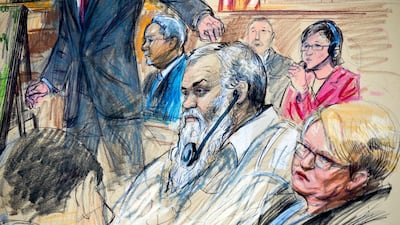Libyan Ahmed Abu Khattala has been sentenced in Washington to 22 years in prison for his role in the 2012 Benghazi attack that killed a US ambassador and three others.
However, prosecutors were unable to convince a jury that Khattala, leader of a militant group who had been photographed watching the attack on September 11, 2012, was directly to blame for the deaths of US ambassador Christopher Stevens, a second State Department official and two CIA contractor guards at the consulate and a CIA annex.
He was convicted of only four of 18 charges he faced: supporting terrorists, conspiracy to provide support to terrorists, carrying a semi-automatic weapon during a violent crime and damaging American property.
That was far weaker than the picture prosecutors had presented of Khattala as the person who plotted and directed the deadly assault.
The death of Mr Stevens stunned Americans and became the focus of a politically charged investigation by congressional Republicans of then-secretary of state Hillary Clinton, who was accused of not protecting the diplomats.
Khattala was captured in 2014 in a raid by US special forces, who then placed him aboard a navy ship, where he was interrogated for a week before being delivered to the United States.
In November last year, a second Libyan accused of involvement in the Benghazi attack, Mustafa Al-Imam, was put on trial in the same Washington court, days after being captured and brought to the United States.
Al-Imam was accused of being one of the men who attacked the consulate.

